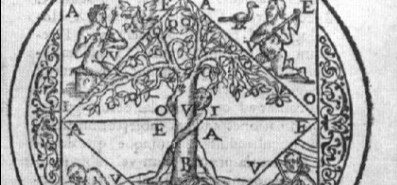Reflections on Motivations and Durations of Ideas: Two revolutionary 16th-century thinkers both upended their contemporary scientific norms, an approach that could inspire innovative thinking even today
by Efthalia STAIKOS
Breakthroughs, progress, solutions, new theories, modern research… all of these words conjure up images of discovery and contribution in the scientific world. Grasping the natural world and understanding what we cannot see provides a sense of satisfaction, even comfort, to most. Science, however, is an example of a field where solutions and progress are actually driven by a certain dissatisfaction with what is already known. It is discomfort with the status quo that has motivated many scientists to push for new answers, alternative options; and to test and ponder persistently until they are satisfied with a new reality. Many scientists throughout history questioned the laws of nature that guide the movement of the stars and planets. It was previously believed that until Galileo, scientists never began to truly speculate on the theories put forth by Aristotle. It did not seem as though anyone had really questioned and researched into creation of the universal systems until Galileo came along. As everyone was frantically searching for an answer they could believe in, Galileo put forth solutions even though his research and his conclusions eventually led to his persecution.
More than 30 years before Galileo’s prolific theory, however, another scientist and philosopher named Giordano Bruno researched into the mysteries of the universe, and both questioned and doubted the generally-accepted Aristotelian theories. Bruno wanted to dismantle the Aristotelian distinction between terrestrial and celestial physics. Even before Galileo, Bruno wanted to create a theory explaining the rotation of the sun around its axis. His dissatisfaction with current theories and ideas lead him to tirelessly research and search for different answers that could explain the universe.
Bruno’s handicap was his inability to express his observations in a scientific manner. He was not a scientist in the modern sense of the word. Bruno never proved his hypotheses through experimentation, as the famous astronomer later did. Neither was he considered a mathemetician. In fact, he was denied the mathematics chair at the University of Padua, awarded instead to his colleague Galileo. Although Bruno could not provide concrete research, his ignorance did not impede him in questioning the accepted scientific beliefs of his time. Like Galileo after him, his quest to fix the mistakes in the existing explanations of the universe, he offended the Catholic Church and suffered intense persecution. Bruno was ultimately burned at the stake in 1600 for his heresy.
Besides the now-common premise that the earth is not the solar system’s center, these men of science demonstrate the fundamental idea that theory must be questioned to broaden our knowledge. One must refute accepted truths to either prove them right or uncover radical new information. If people allow themselves to be satisfied by simple, easy solutions, then the real explanations for life’s mysteries may never be solved. True philosophers understand that each conquest of knowledge or truth is only temporary, until new ideas and truths emerge.
This “dissatisfied” approach espoused by Bruno and Galileo is noted even in contemporary scientists. For example, if the American, Edwin Hubble, had not questioned the length of light waves through a prism as discovered by Martin Rees, then the Hubble Telescope may not have been invented. The 20th-century Big Bang Theory is yet another example of a hypothesis that challenges an existing (beloved) idea of the origin of life. Although it is controversial, and widely disputed, there are some scientists fervently defend it, even without evidence.
“I, personally, I would be willing to bet against everything we see has had its beginning in a ball of fire extremely compressed, much more hot than the sun,” (Raffaelo Cortina, pp.382, 25) wrote Martin Rees. It is this burning desire to prove a new theory, or at least prove that alternative theories do exist, that drives science.
Thus, it is important to uphold the memory of Giordano Bruno, alongside that of his famous colleague. Together, these men demonstrated overturning standard thinking led – literally – to new worlds.
